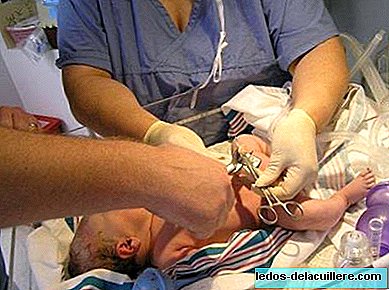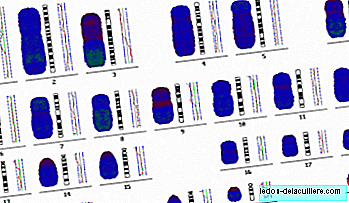
A new study published in the scientific journal 'British Medical Journal' It demonstrates with scientific evidence the advantages of late cord clamping at the time of delivery. Concludes that wait three minutes to cut the umbilical cord is beneficial for the baby's health, because it receives an important transfusion of blood from the placenta, raising iron stores in blood.
About three minutes after the baby leaves, and once he has started using the lungs to breathe on his own, the cord stops beating. It flattens and runs out of pulse.
Cutting the cord before this happens has no benefit for the baby, and can even cause problems if your lungs have not begun to function properly. On the other hand, waiting for the time needed to stop beating produces an exchange of blood between the mother and the newborn, which contributes, among other things, to preventing childhood anemia.
The study involved 400 newborn babies from low-risk pregnancies that were divided into two groups. One group was subjected to the cord cut after three minutes and the rest was cut less than ten seconds after delivery. According to the results, babies whose cut was made later had a higher concentration of iron in their blood.
It is a practice that is usually done immediately after the baby is born. Although initially it was related to some complications of the newborn, being able to raise the risk of neonatal jaundice and other health problems, this study argues that late cutting is not linked to these effects.
If so, if it is a beneficial practice for baby's health, ensuring adequate levels of iron that can prevent infant anemia and anemia problems in the growth stage, as well as being essential for brain development, the research concludes that wait at least three minutes to cut the umbilical cord It should "be considered as standard care for term births after pregnancies that do not present complications."












